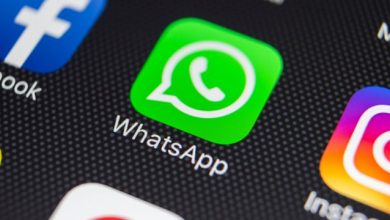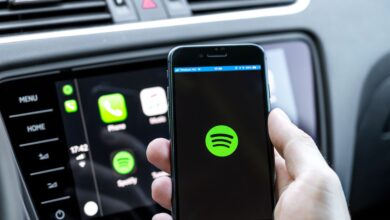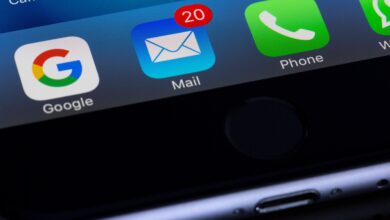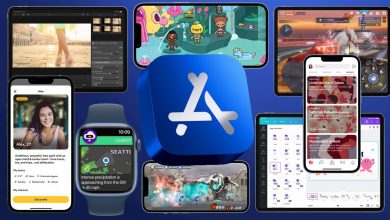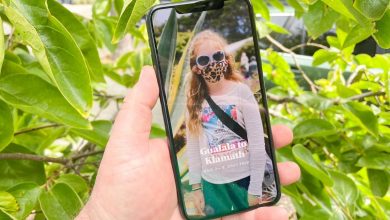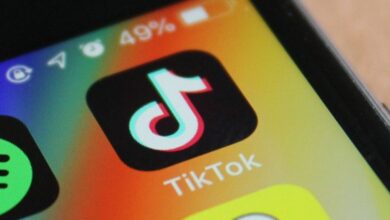
Iphone customers shouldn’t come to feel also smug about their phone’s security — iOS applications are just as unsafe to use as Android applications, a safety researcher and college instructor advised the Def Con hacking conference this earlier weekend.
Like lots of Android applications, numerous iOS apps transmit consumer passwords in plaintext or help you save the password unprotected on the cellular phone, explained Sam Bowne, an teacher at the Metropolis University of San Francisco. Many others fall short to use encryption appropriately, rendering the apps vulnerable to attacks.
“Obtaining vulnerabilities in cellular apps is like taking a time device back again to the early ’90s when persons failed to know anything about safety,” Bowne stated.
Having said that, since Apple has produced it incredibly hard to look at iOS applications or the iOS operating program, no one particular realized how unsafe iOS applications seriously had been until finally not too long ago.
“I did a great deal of Android auditing because it can be incredibly simple on Android,” Bowne mentioned. “It was incredibly challenging on iOS right up until Checkra1n.”
Previous drop, a workforce led by one particular of Bowne’s former learners produced the Checkra1n jailbreak, which cracks open the software of any Iphone model from the Iphone 4s to the Apple iphone X. That gave Bowne the prospect to take a look at iOS applications.
“I discovered that it is real what I had heard — that iOS applications are just as undesirable as Android apps,” Bowne claimed, even while “the [iOS] running method is a tiny additional safe, and the coding language is more challenging to reverse engineer.”
A great deal of the blame falls on 3rd-party application developers that are contracted to construct apps for other providers, Bowne explained. But ultimately, the responsibility lies with the firms whose names are on their applications.
“It can be painfully apparent,” Bowne mentioned, “that the benchmarks of most app developers are extremely low, and that the administration [of the companies that use the apps] does not evaluate the security of apps they invest in from third-party developers, not even for the most straightforward flaws.”
Ten or 15 percent of Android apps that Bowne has examined make elementary security faults, the researcher informed the Def Con attendees.
As of 2015, these provided major banking, inventory-buying and selling and insurance plan applications, all from makes that are domestic names. None of the apps had integrity checks to prevent their code from currently being tampered with.
“You can see the source code, you can modify the code, you can make a modified app and run it, and they don’t detect that it is really modified and they you should not detect that it can be an unauthorized app when it connects to the server,” Bowne reported.
Crooks could use these flaws to build modified versions of the Android applications. If a crook obtained you to set up a person of the corrupted apps, the criminal would achieve access to your account as before long as you logged in.
There is certainly a checklist of these susceptible banking, inventory-investing and insurance coverage applications on Bowne’s site. We’re not naming them in this article simply because some have most likely been fixed given that Bowne found the flaws in 2015.
“An great variety of applications bear in mind who you are by storing your password locally on the telephone,” Bowne reported, which he called “incredibly odd.” It’s a shortcut that produces needless threats.
Bowne named additional than a dozen Android apps from nicely-known restaurant, supermarket, drugstore, property-advancement and office environment-supply retail chains that, as of 2017, saved consumer passwords locally either in plaintext or with undesirable encryption that could very easily be cracked.
Now for the terrible information for Apple iphone customers. You would think that iOS apps would be safer, due to the fact general Apple’s cellular running system is tougher to break into. But that’s not the situation, Bowne mentioned.
“I by no means definitely realized how bad it was on iOS” until finally the Checkra1n jailbreak, produced by Bowne’s previous scholar AxiomX, he claimed: “I couldn’t definitely search inside the file technique.”
“For the reason that of him and the staff that joined him to make the Checkra1n exploit, we could now get into the procedure of contemporary iPhones,” Bowne stated. “And that was pleasurable.”
Contents
iOS applications have the identical challenges
In the course of December 2019 and January 2020, Bowne stated, “I audited a couple hundred Apple iphone apps — and I uncovered all the identical problems with Iphone applications.”
For instance, the Blue Cross Blue Protect of Massachusetts iOS application saved passwords on the cellphone with no encryption.
The Blue Shield of California iOS app broke world wide web encryption, earning it vulnerable to man-in-the-middle attacks. In 2014, Fandango and Credit history Karma had been fined by the FTC since their Android and iOS apps did this far too.
The West Stage and Air Power Academy athletics teams’ iOS applications both of those transmitted person passwords more than the net in plaintext, Bowne claimed. The Zillow Rentals iOS application saved passwords in plaintext on the cellular phone.
Arrived at for comment, a Zillow spokesperson informed Tom’s Guideline, “We are informed of the reported issue impacting iOS buyers and our groups are functioning to establish an update to safeguard our prospects. We will be releasing a security update soon that buyers can down load by way of the Application Retail store.”
Apple’s finest app security is optional
Bowne was astonished by the passwords transmitted in plaintext from iOS applications, simply because he imagined Apple’s Application Transport Safety (ATS) protection characteristic created encryption obligatory. But he checked Apple’s developer guides and identified that applications will not have to use ATS. A different study in mid-2019 located that totally two-thirds of iOS applications did not use ATS at all.
“I experienced believed that Apple was extra secure than that, but it’s not so,” Bowne claimed. “And it’s absolutely not so in follow.”
Even the iOS app for students at Bowne’s own school, Metropolis University of San Francisco, transmitted user passwords with broken encryption, he explained. Various other schools close to the nation utilised the exact same developer to establish their iOS apps, with the identical outcomes.
Bowne uncovered approximately a dozen iOS apps from regional banking companies in the Midwest and California, built by two various developers, that exposed consumer passwords in a log file on the cell phone.
“You would consider, at minimum, that a developer which is building a full merchandise line would have some protection auditing, but definitely they never and their prospects you should not,” Bowne explained. “So you can just provide damaged junk for good and nobody will capture you for a extensive time.”
Bowne disclosed all these iOS application vulnerabilities to the app distributors before this yr, and several have been mounted, he claimed, “if they’re at any time gonna be fastened.”
The worst app in the entire world?
The “worst application in the world,” Bowne said, is almost certainly an Indian economic application for Android named Fairness Pandit that he termed “incredibly, thoughts-bogglingly insecure” even even though it is even now in typical use.
Preferably, when you kind your password into an app, the application really should ship the password in encrypted form to the app’s server, in which it must be in comparison to the encrypted password the server has on file for your username.
If the encrypted passwords match, then an encrypted authorization token ought to be sent from the server to your cellphone to grant you accessibility.
Here’s what the Equity Pandit Android application does instead, in accordance to Bowne: When you kind in your e mail address adopted by an incorrect password, the Fairness Pandit app sends your unencrypted email address to Equity Pandit’s server.
The server appears to be like up the suitable password for your electronic mail address and transmits the unencrypted password to the application on your cellular phone. Then the app checks the password you typed in against the right password it has just been sent from the server.
How to get anyone’s password
Anybody who understands your e mail handle can use this flaw to drive the Equity Pandit server to deliver them your password, which the attacker will be in a position to see in plaintext making use of effortlessly offered Android emulation resources.
“I gave my college students homework to just steal my password from my account on their server,” Bowne explained, referring to Fairness Pandit’s server. “Any person can get anybody’s password at any time.”
Bowne stated he explained to Equity Pandit about this difficulty with its Android application many years in the past, but the challenge still has not been mounted. He proceeds to use the app in his hacking lessons. Neither Fairness Pandit’s Android app nor its iOS application have been up to date considering the fact that early 2016.
“That is astounding to me,” Bowne explained, “that a company, particularly a money corporation, can just hand out all the passwords of every person all the time and nobody cares and it’s continue to heading on.”
Almost as negative was the University of Houston alumni application for Android, Bowne claimed. Just before you even logged in, it would allow you look for for yourself on a record of alumni.
To make that simpler, it would just ship the school’s full alumni databases to your cellphone, together with alumni names, account figures, credit history card numbers, e mail addresses and passwords. That’s before you even made an account.
This may perhaps have been carried out so that the lookup course of action would run more quickly on a mobile phone with a poor community link. But the upshot was that countless numbers of folks were being almost certainly strolling all over with each other’s personal non-public info on their phones. That Android app has given that been fixed, Bowne claimed.
10 p.c mend level
Tom’s Manual has arrived at out to Fairness Pandit, the Town Higher education of San Francisco and Blue Shield of California in search of comment. Attempts to reach Blue Cross Blue Defend of Massachusetts were being unsuccessful. We will update this story when we obtain replies.
The dilemma with mobile-application flaws is that, in Bowne’s practical experience, possibly 10 p.c of organizations that he notifies of flaws in their applications will ever correct them. That’s far better than a several years in the past, Bowne mentioned, when 2 % of companies would take care of the flaws and many others would threaten to sue him or connect with him a prison.
“It can be turning into more common that they will at the very least confess that it is feasible that they could possibly have a safety flaw,” Bowne claimed, “and that in theory they must do anything about it as an alternative of just capturing the messenger.”
PowerPoint slides for Bowne’s Def Con presentation are on his internet site, and the movie of the presentation is on YouTube, starting about 15 minutes in. If you would like to study a lot more about reverse-engineering and auditing apps, a lot of of Bowne’s CCSF lessons can be attended for free by way of remote-learning platforms.
